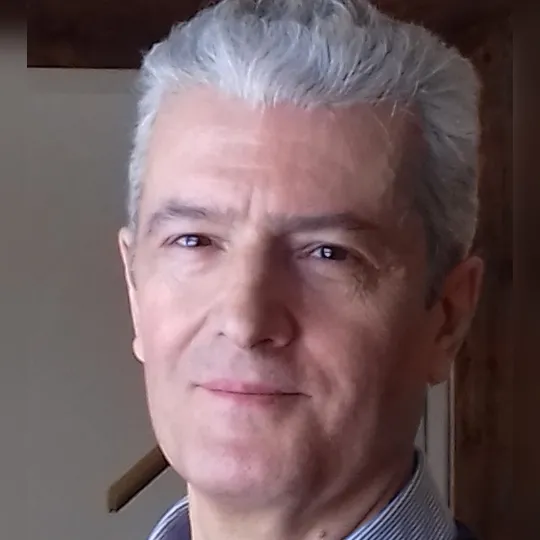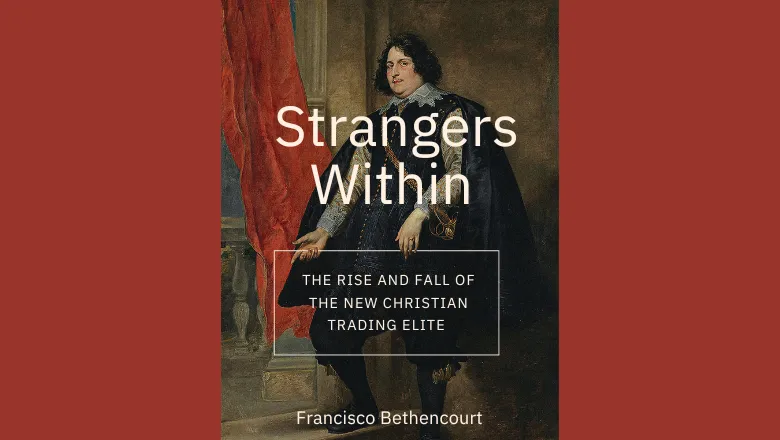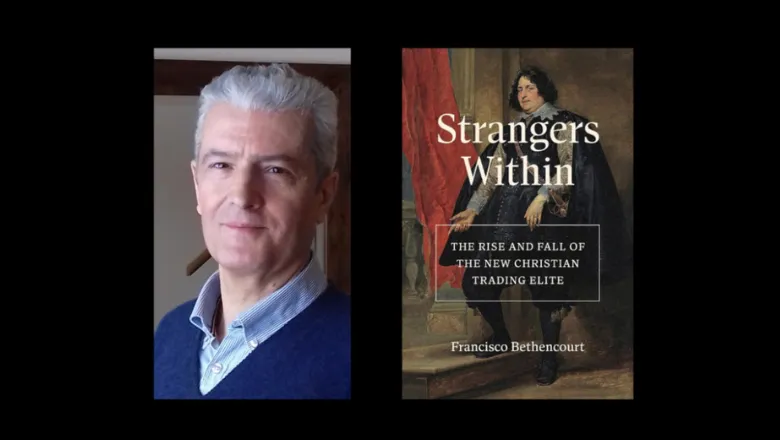
Professor Francisco Bethencourt
Charles Boxer Professor of History
Research interests
- History
Biography
Francisco Bethencourt is a leading historian of the Portuguese-speaking world; he also contributes to the field of world and global history. He is Charles Boxer Professor of History at King’s College London since 2005, having taught previously at the Universidade Nova de Lisboa and served as Visiting Professor at Brown University and Universidade de São Paulo.
Bethencourt authored five monographs, edited or co-edited twenty-seven books and journal issues, and published more than one hundred academic articles and chapters, contributing to the development of crucial areas of research, such as the history of racism, inequality, gendering, cosmopolitanism, utopia, minorities, merchant cultures, cultural exchange, or intellectual sociability. His monographs have been translated into English, French, Italian, Spanish and Portuguese. He curated an exhibition on the history of Racism and Citizenship in Lisbon and continues to be involved in other museum projects in Portugal, currently on the history of slavery.
His recent book Strangers Within. The Rise and Fall of the New Christian Trading Elite (Princeton UP), a TLS Book of the Year, offers the first comprehensive study of the crucial role played by the descendants of Jews forced to convert into Christianity in intercontinental trade, inside and outside the Iberian world.
Drawing on groundbreaking research in eighteen archives and library manuscripts in six different countries, Bethencourt argues that the liminal condition in which the New Christians found themselves explains their rise, economic prowess and cultural innovation, including the first coherent legal case against the discrimination of a minority singled out for systematic inquisitorial inquiry.
His acclaimed study Racisms from the Crusades to the Twentieth Century (Princeton UP) was largely based on primary sources to analyse different types of racism in the Western world and compare Western, Asian and African racisms. Review: “Bethencourt's long-range view - deep in time, wide in space - puts more familiar turning points in the global history of racism into novel perspective [...] more ambitiously, Bethencourt draws out racism's purpose in combating egalitarianism in Europe after 1848, in cementing racial inequality in the United States and in promoting European incursions into Asia [...] When Bethencourt reaches the past hundred years or so, the examples of the Jewish pogroms in Russia, the Armenian genocide and the Nazi racial state amply confirm his hypothesis that political projects motivate racism”, David Armitage, Times Literary Supplement, 25.7.14
Bethencourt’s first comparative monograph, O imaginário da magia, focused on magic and witchcraft in Portugal, then compared to southern Europe. His second monograph, The Inquisition: A Global History 1478-1834 on the Inquisition in Italy, Spain, Portugal and the Iberian empires remains the only global comparative study of this tribunal based on archival work and was published by Cambridge UP in 2009, a revised edition after French, Portuguese, Spanish and Brazilian versions.
Bethencourt is internationally recognized as specialist of the Portuguese and European expansion across continents. He co-edited with Kirti Chaudhuri the most comprehensive history of the Portuguese expansion in five volumes, in Portuguese, and with Diogo Ramada Curto The Portuguese Oceanic Expansion, 1400-1800 (Cambridge UP). The complex relations of power between European structures and native agency have increasingly become the focus of his work. Bethencourt is committed to writing comparative and long-term history which breaks through local, regional and national frameworks of academic research by highlighting social configurations and institutional behaviour across frontiers.
Bethencourt keeps publishing on different aspects of the history of the Portuguese-speaking world; a new project concerns the Anti-Epic Culture, a book related to lectures at the National Library of France in 2026.
He received a Major Leverhulme Fellowship to work on The New Christian Trading Elite, 1497-1773 (2017-2019). He is also committed to a long-term project on the history of inequality and rights in the world. In 1993, his PhD on the Inquisition received the Salvador Madariaga-prize of EUI for the best PhD thesis, and, in 2003, Bethencourt was honoured for his achievements as historian by the Portuguese President of the Republic with the Order of Henry the Navigator. He is a member of the Portuguese Academia da Marinha and the Academia Europaea. He served as director of the National Library of Portugal (1996-8) and directed the Gulbenkian Cultural Centre in Paris (1999-2004). He has been a member of advisory boards of the Warburg Institute and the Institute for Latin American Studies, European research projects and PhD inter-university programmes. He served as a member of selection committees for full professors at the European University Institute, Université de Paris-Sorbonne, and Universidade Católica Portuguesa, and has chaired the Department of Portuguese Studies at King’s College London (2007-9), before joining the Department of History.
Research
- History of Inequality and Rights in the World
- History of Racism in the World
- European Expansion (15th-19th centuries)
- Religious History and the Inquisition
- Epic and Anti-Epic Cultural Expression in the Iberian World
- Identities in the Portuguese speaking World
Francisco Bethencourt is currently researching the history of inequality in the world. The book on history of racism tested his work on different scales (long term macro approach blended with the analysis of precise conjunctures), as well as his methods of analysing primary textual and visual sources. The book he published on the Inquisition in Italy, Spain, Portugal and Iberian colonies from 1478 to 1834 likewise addressed long term issues and was based on extensive archival sources.
Teaching
Professor Bethencourt teaches Global History, particularly Power and Inequality, Visual Culture, Racism and Rights, European Expansion.
Expertise and Public Engagement
Racism, human rights, colonial past, memory.
Professor Bethencourt has been interviewed by the BBC World Service, France Inter, Die Zeit, TV1 in Portugal, and Portuguese newspapers.
He acted as a referee for the European Research Council and has been a member of Advisory Boards of ERC main projects. He has links with the Centre Roland Mousnier (Université de Paris-Sorbonne) and the Centro de Estudos Sociais (Universidade de Coimbra). He is at the advisory boards of journals in Portugal, Brazil and Spain. He curated a significant exhibition on racism and citizenship in Lisbon and regularly contributes with opinion articles to the reference newspaper Público. He has been interviewed to main media in the UK, Portugal and Brazil.
Selected publications
- 'Strangers Within. The Rise and Fall of the New Christian Trading Elite (Princeton: Princeton University Press, 2024), 602 pp.
- Direitos Humanos (Lisbon: Fundação Francisco Manuel dos Santos, 2023), 127 pp.
- Racisms: From the Crusades to the Twentieth Century (Princeton: Princeton University Press, 2013), 444 pp. Translations published in Portugal, Brazil, and Italy; under contract for French and Spanish editions
- The Inquisition. A Global History, 1478-1834 (Cambridge: Cambridge University Press, 2009), 491 pp. Updated English version with a new Introduction. Previous editions in French, Portuguese (Portugal and Brazil) and Spanish.
- Editor, Gendering the Portuguese-Speaking World. From the Middle Ages to the Present (Leiden: Brill, 2021), 284 pp.
Further details
Please see Francisco's Research Profile for further details.
Research
Empires and Decolonizations Research Hub
Aiming to bring together those at King’s interested in the history of empires, across all periods - ancient and modern.

Global History
Research about how historicities from past, to present, and future, differ across societies.
News
The hidden history of Iberia's New Christians
The first comprehensive history of the descendants of Jews forced to convert to Catholicism in late medieval Spain and Portugal.

Professor Francisco Bethencourt curates new Lisbon exhibition
Professor Francisco Bethencourt, Charles Boxer Chair at the King's History department will be curating an exhibition exploring the relationship between racism...

Events

Strangers Within by Professor Francisco Bethencourt
Join us for a roundtable discussion of Prof. Francisco Bethencourt's (Charles Boxer Professor, King's) new book, Strangers Within The Rise and Fall of the New...
Please note: this event has passed.

Professional Development for Executives: How to Create a Powerful Personal Brand
Discover how to create a powerful personal brand at our virtual taster event.
Please note: this event has passed.
Research
Empires and Decolonizations Research Hub
Aiming to bring together those at King’s interested in the history of empires, across all periods - ancient and modern.

Global History
Research about how historicities from past, to present, and future, differ across societies.
News
The hidden history of Iberia's New Christians
The first comprehensive history of the descendants of Jews forced to convert to Catholicism in late medieval Spain and Portugal.

Professor Francisco Bethencourt curates new Lisbon exhibition
Professor Francisco Bethencourt, Charles Boxer Chair at the King's History department will be curating an exhibition exploring the relationship between racism...

Events

Strangers Within by Professor Francisco Bethencourt
Join us for a roundtable discussion of Prof. Francisco Bethencourt's (Charles Boxer Professor, King's) new book, Strangers Within The Rise and Fall of the New...
Please note: this event has passed.

Professional Development for Executives: How to Create a Powerful Personal Brand
Discover how to create a powerful personal brand at our virtual taster event.
Please note: this event has passed.
